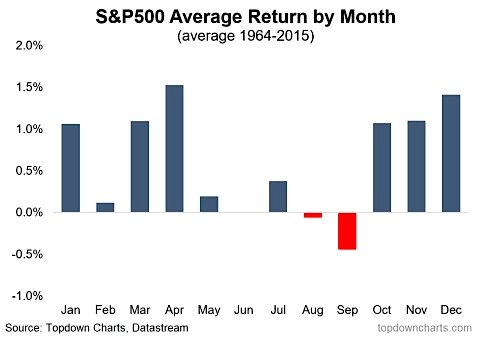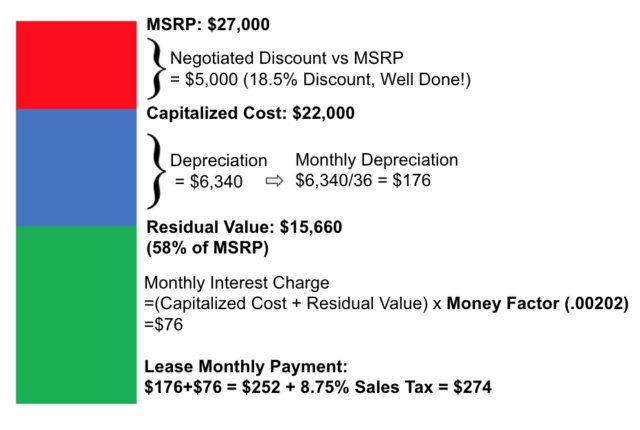Looking to make a career in finance? You’ve come to the right place! In this blog article, we will guide you through the steps and strategies to excel in the world of finance. Whether you’re just starting out or looking to take your career to the next level, we’ve got you covered. From mastering financial analysis to developing strong networking skills, we’ll provide you with practical advice and insights that will set you on the path to success. So, if you’re ready to dive into the exciting and dynamic field of finance, keep reading and get ready to embark on a rewarding journey.
How to Make a Career in Finance
Finance is a vast field that offers numerous career opportunities for individuals with a passion for numbers, analysis, and financial management. Whether you are a recent graduate or contemplating a career change, entering the finance industry can be an exciting and rewarding journey. In this article, we will explore the steps you can take to make a successful career in finance, from gaining relevant education and certifications to building practical skills and networking within the industry.
Educational Pathways in Finance
To begin your journey toward a career in finance, it is essential to obtain the necessary education and knowledge base. While many careers in finance require at least a bachelor’s degree, some roles, such as financial analysts or investment bankers, may require advanced degrees. Here are some educational pathways you can consider:
Bachelor’s Degree in Finance or Related Fields
Earning a bachelor’s degree in finance or a related field, such as accounting, economics, or business administration, is a great starting point. These programs often provide a solid foundation in financial management, investments, economics, and accounting principles. Additionally, they may offer opportunities for internships or co-op experiences, allowing you to gain practical exposure to the finance industry.
Master’s Degree in Finance or MBA
For those aiming for more specialized positions or higher-level roles, pursuing a master’s degree in finance or a Master of Business Administration (MBA) with a finance concentration can be advantageous. These programs delve deeper into financial theories, advanced investment strategies, risk management, and corporate finance. An MBA, in particular, offers a broader understanding of business principles while providing a focus on finance.
Professional Certifications
In addition to formal education, obtaining professional certifications can enhance your credibility and marketability in the finance industry. Consider pursuing certifications such as:
- Chartered Financial Analyst (CFA)
- Certified Financial Planner (CFP)
- Financial Risk Manager (FRM)
- Chartered Alternative Investment Analyst (CAIA)
These certifications demonstrate your expertise in specific areas of finance and can significantly boost your career prospects.
Developing Key Skills
While education provides a strong foundation, developing key skills is equally important to thrive in the finance industry. Here are some essential skills you should focus on:
Analytical Skills
Finance professionals need strong analytical skills to interpret complex financial data, identify trends, and make informed decisions. Enhance your analytical skills by practicing financial modeling, performing data analysis, and staying updated with industry trends and news.
Attention to Detail
In finance, attention to detail is crucial to avoid errors and ensure accuracy in financial statements, contracts, and reports. Develop your attention to detail skills by double-checking your work, reviewing documents meticulously, and consistently maintaining precision.
Problem-Solving Abilities
Finance professionals often encounter complex problems that require critical thinking and innovative solutions. Sharpen your problem-solving abilities by actively seeking challenges, brainstorming solutions, and exploring different perspectives.
Communication Skills
Effective communication is essential in the finance industry, as professionals need to convey complex financial concepts to both technical and non-technical stakeholders. Work on improving your verbal and written communication skills to ensure clarity, conciseness, and professionalism.
Financial Software Proficiency
Proficiency in financial software and tools is vital for finance professionals. Familiarize yourself with popular software like Excel, financial modeling tools, and accounting software. Stay updated with the latest software advancements to remain competitive in the field.
Internships and Entry-Level Positions
Internships and entry-level positions serve as valuable stepping stones to kickstart your career in finance. These opportunities provide practical exposure, help you build a professional network, and refine your skills. Consider the following steps:
Internships
During your education, seek internships at financial institutions, investment firms, or corporate finance departments. Internships provide hands-on experience and allow you to work alongside industry professionals. Additionally, they offer a chance to showcase your skills and make valuable connections.
Entry-Level Positions
After completing your education or internship, consider applying for entry-level positions in finance. These positions may include roles such as financial analyst, junior accountant, or investment associate. Although entry-level positions may involve routine tasks initially, they provide opportunities to learn from experienced professionals and gain a better understanding of the industry.
Networking
Building a strong professional network is crucial for career advancement in finance. Attend industry events, join finance-related organizations, and connect with professionals on platforms like LinkedIn. Networking can lead to mentorship opportunities, job referrals, and valuable insights into the industry.
Specializations in Finance
The field of finance offers various specializations, allowing you to focus on specific areas of interest. By specializing, you can develop expertise in a particular domain and expand your career opportunities. Here are some popular specializations in finance:
Investment Banking
Investment banking involves facilitating corporate finance transactions, mergers and acquisitions, and raising capital for companies. Professionals in this field assist clients in making strategic financial decisions and often work in high-pressure, fast-paced environments.
Financial Planning and Wealth Management
Financial planners and wealth managers provide personalized financial advice to individuals and families. They help clients manage their investments, plan for retirement, and achieve their financial goals. This specialization requires a strong understanding of investment strategies, tax planning, and risk management.
Corporate Finance
Professionals in corporate finance work within organizations, managing financial operations, budgeting, and financial analysis. They play a crucial role in optimizing the company’s financial resources, conducting cost-benefit analysis, and ensuring the organization’s financial stability.
Risk Management
Risk management professionals identify and assess potential risks that could impact an organization’s finances and implement strategies to mitigate those risks. They work closely with financial institutions, insurance companies, and businesses to develop strategies for managing uncertainty.
Financial Analysis
Financial analysts analyze financial statements, economic data, and industry trends to provide insights and recommendations to individuals and organizations. They assist in investment decisions, valuation of assets, and assessing the financial health of companies.
Continued Learning and Professional Advancement
Finance is a dynamic field that undergoes constant changes due to market fluctuations, regulatory updates, and technological advancements. To stay relevant and advance your career, it is essential to engage in continued learning and professional development. Consider the following:
Continuing Education
Attend seminars, webinars, and workshops offered by industry organizations to stay updated with the latest developments. Many professional associations and educational institutions offer continuing education programs specifically designed for finance professionals.
Advanced Certifications
As you progress in your career, consider pursuing advanced certifications or designations that align with your specialization. These certifications demonstrate your commitment to professional growth and expertise in your field.
Mentorship and Coaching
Seek mentorship or coaching from experienced finance professionals who can provide guidance and help you navigate your career path. Mentorship programs, industry associations, and networking events can connect you with potential mentors.
Track Industry Trends
Stay informed about emerging trends, technological advancements, and regulatory changes within the finance industry. Subscribe to reputable finance publications, join relevant online communities, and follow thought leaders in the field.
In conclusion, making a career in finance requires a combination of education, skills, practical experience, and networking. By following the steps outlined in this article and continuously investing in your professional growth, you can unlock exciting opportunities and build a successful career in the finance industry. Remember, dedication, perseverance, and a passion for finance are the keys to thriving in this dynamic field.
Complete Roadmap for Making a Successful FINANCE Career! (July 2023)
Frequently Asked Questions
Frequently Asked Questions (FAQs)
How do I make a career in finance?
To make a career in finance, you can follow these steps:
1. Obtain a bachelor’s degree in finance, accounting, or a related field.
2. Gain practical experience through internships or entry-level positions in financial institutions.
3. Consider pursuing advanced degrees, such as a Master’s in Business Administration (MBA) or a Chartered Financial Analyst (CFA) designation.
4. Continuously update your skills and knowledge through professional development courses and certifications.
5. Network with professionals in the finance industry to build connections and explore potential job opportunities.
What skills are important for a career in finance?
Some key skills that are important for a career in finance include:
– Strong analytical and problem-solving abilities
– Proficiency in financial analysis and financial modeling
– Excellent numerical and mathematical skills
– Attention to detail and accuracy
– Effective communication and presentation skills
– Knowledge of financial software and tools
– Familiarity with economic and industry trends
– Ethical decision-making and integrity
What are the different career paths in finance?
There are several career paths you can pursue in finance, including:
– Investment banking
– Corporate finance
– Financial planning and analysis
– Asset management
– Risk management
– Financial consulting
– Insurance
– Real estate finance
– Private equity and venture capital
Do I need a specific degree to work in finance?
While a specific degree in finance can be advantageous, it is not always mandatory. Many finance professionals have degrees in related fields, such as accounting, economics, or business administration. However, some specialized roles, such as investment banking, may require a more specific finance-related degree.
Is it necessary to have certifications in finance?
Certifications in finance can enhance your credibility and marketability in the industry. While not always necessary, certifications such as the Certified Financial Planner (CFP), Chartered Financial Analyst (CFA), or Certified Public Accountant (CPA) can demonstrate your expertise and commitment to your profession. However, it is important to note that certifications alone do not guarantee success in a finance career.
How can networking help in building a career in finance?
Networking is crucial in the finance industry as it allows you to establish relationships with professionals who can provide valuable insights, job opportunities, and mentorship. Attend industry events, join finance-related associations, and utilize online platforms like LinkedIn to connect with others in the field. Building a strong network can help you stay updated on industry trends, gain referrals, and expand your career opportunities.
What are the current trends in the finance industry?
Some current trends in the finance industry include:
– Emphasis on sustainable finance and environmental, social, and governance (ESG) investing
– Increasing adoption of technological advancements such as artificial intelligence and blockchain
– Growing demand for data analytics and financial planning
– Remote work and digital transformation in response to the COVID-19 pandemic
– Focus on diversity and inclusion in the finance workforce
How can I stay updated with the latest developments in the finance industry?
To stay updated with the latest developments in the finance industry, you can:
– Follow reputable financial news outlets and subscribe to their newsletters.
– Join professional associations and attend industry conferences or webinars.
– Engage in continuous learning through online courses and certifications.
– Participate in finance-related forums and discussions on social media platforms.
– Network with professionals in the field and engage in knowledge-sharing conversations.
Final Thoughts
To make a successful career in finance, you need to focus on acquiring the right skills and knowledge. Start by obtaining a relevant degree in finance or a related field. Internships and entry-level positions are great opportunities to gain practical experience and build a network within the industry. Continuing education and professional certifications, such as CFA or CPA, can greatly enhance your career prospects. Developing strong analytical and quantitative skills, as well as staying updated with industry trends and advancements, is crucial for success. Embrace continuous learning, seek mentorship, and stay proactive in networking and job searching. With dedication and perseverance, you can pave your way to a rewarding career in finance.



